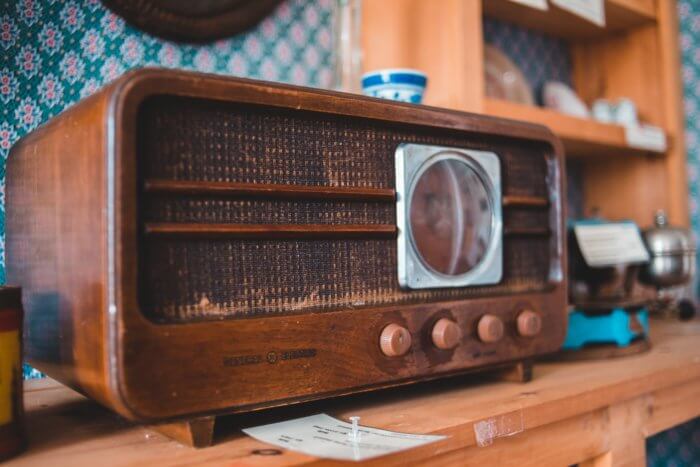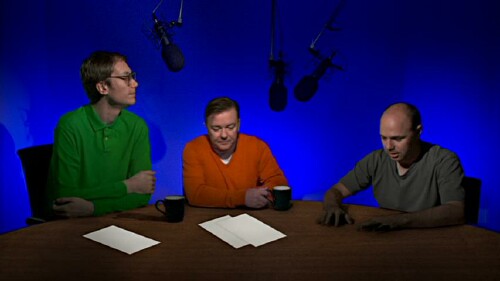When Did Podcasts Start: A Brief History of Podcasting
Ever wonder, when did podcasts start?
In 2020, Spotify bought exclusive rights to Joe Rogan’s podcast for $100 million dollars. Oprah records a podcast every week. Barack Obama and Bruce Springsteen cohost a podcast together. Many podcasts have been adapted into TV shows, like Homecoming, Comedy Bang Bang, Dirty John, and The Shrink Next Door.
But how did podcasts get this big? Let’s take it back to the beginning and learn the history of podcasting and how we got to where we are today.
Precursors to Podcasts

While radio has been around since 1895, the broadcasts weren’t recorded for posterity until 1989 with the show “The Illusion of Independent Radio”. Listeners in the Soviet Union recorded and copied tape recordings of the show to avoid official Soviet censorship.
Then, in 1993 Internet Talk Radio became the first radio program to allow listeners to download episodes, pause, rewind, and skip through the recorded program.
Throughout the 90’s, the popularity of the internet continued to grow, eventually resulting in an entertainment service called MyAudio2Go.com. MyAudio2Go enabled users to download episodic news, sports, entertainment, weather, and music in audio format for listening on a PC and on various MP3 players.
While all these all sound a lot like podcasts, they aren’t quite podcasts as we know them today. Podcasts aren’t just downloadable audio, they are audio delivered using a piece of technology called RSS feed.
Official Beginning of Podcasts
RSS feeds came onto the scene in 1999. They allow users to subscribe to updates to various websites, but did not create podcasts until 2003.
Adam Curry and Kevin Marks get credit as the inventors of the podcast, because they were the first people to connect RSS feeds to iTunes. That same year, the first podcast, IT Conversations by Doug Kaye came out.
Even still, the term podcast didn’t exist. Early in 2004, Guardian journalist Ben Hammersly was writing about this fledgling phenomenon of MP3 based radio shows, and suggested combining the words iPod and broadcast to call the medium podcasting. The name stuck.
Growth of Podcasts

Once podcasting found a name, its popularity grew almost immediately. In 2005, Apple officially added podcasts to iTunes, which brought more mainstream attention to the medium. Popular British comedian, Ricky Gervais started his podcast and quickly became a megahit – eventually reaching 300 million unique downloads.
After seeing Gervais’ success with podcasting, many other comedians started their own shows in the mid 2000’s like Joe Rogan, Marc Maron, and Adam Carolla. To this day, comedy remains the most popular genre of podcasts.
Even with celebrity name recognition, podcasts didn’t fully achieve mainstream popularity until 2014 with the release of Serial. Produced by This American Life, Season 1 of Serial investigated the 1999 murder of Hae Minh Lee, and kept fans mesmerized as host Sarah Koenig revealed new evidence week after week. A year after the series came out, it smashed records with 68 million downloads. Serial established the true crime genre in podcasting, which is the third most popular genre today.
In 2019, New York Times released their first episode of The Daily, a daily news podcast. The Daily was an instant success, quickly rising to the top 10 most popular podcasts. Other journalistic outlets followed suit and created their own daily news podcasts, like Morning Wire, Up First, and Today, Explained. Because of megahit shows like these, news podcasts are the second most popular podcast genre today.
State of Podcasts Today
It’s kind of a joke in the podcasting community that everyone and their mother has started a podcast. And it’s easy to feel that way with how many shows are out there. Today, there are around 850,000 active podcasts, over a million inactive shows, and a total of 48 million episodes.
While that’s a staggering amount of shows, there’s also a huge audience. Every month, an average of 104 million Americans listen to podcasts, up from 67 million in 2017.
And where there’s an audience there’s advertisers. In 2021, advertisers spent a total of $1.33 billion dollars on podcasts, and that number is expected to grow to $1.74 billion by the end of 2022.
The most popular and profitable podcast is The Joe Rogan Experience, with 11 million listeners per episode, grossing around $100,000 per episode. Since 2009, Joe Rogan has released close to 2000 episodes.
What is the Future of Podcasts?

It’s taken decades of incremental growth, but podcasts are finally mainstream. But the industry is still young. Experts expect podcasting to keep growing – with more podcasts, more listeners, and more money.
To follow where podcasts are going, and to listen to podcasts yourself – sign up for Podchaser. Podchaser is the world’s most comprehensive podcast database right at your fingertips. Find your next favorite podcast on Podchaser. Browse by category, rating, creators, user made lists, or search for topics that interest you.
Unlock more with Podchaser Pro
- Audience Insights
- Contact Information
- Demographics
- Charts
- Sponsor History
- and More!

- Account
- Register
- Log In
- Find Friends
- Resources
- Help Center
- Blog
- API
Podchaser is the ultimate destination for podcast data, search, and discovery. Learn More
- © 2024 Podchaser, Inc.
- Privacy Policy
- Terms of Service
- Contact Us